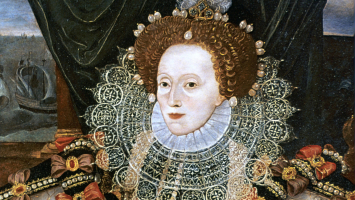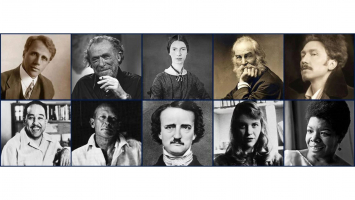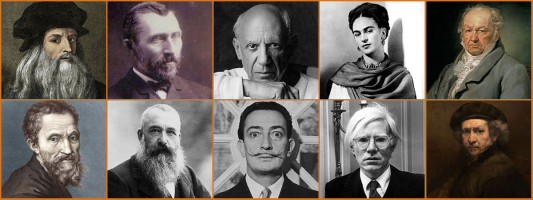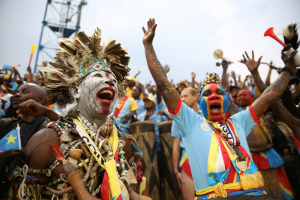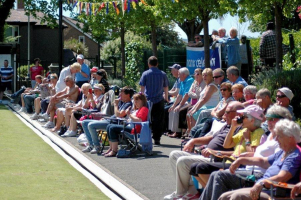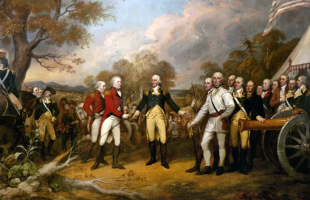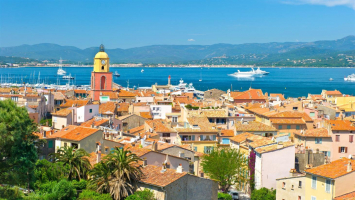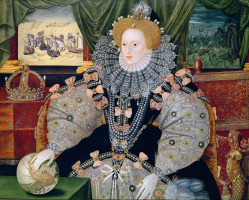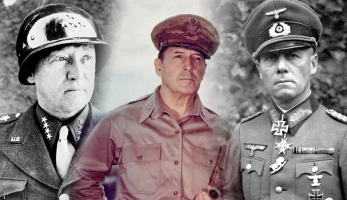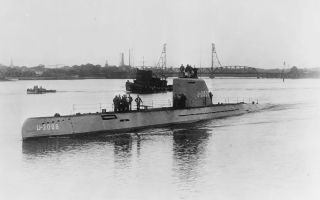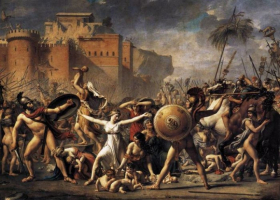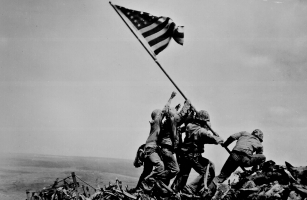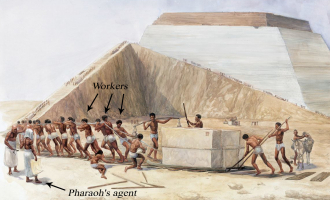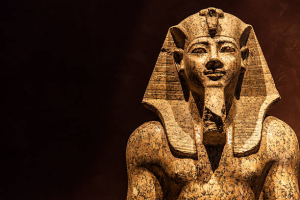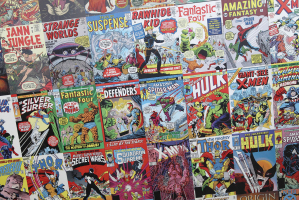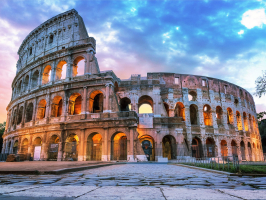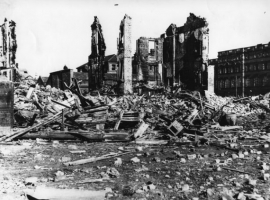Top 10 Most Noteworthy Events From the Reign of Queen Elizabeth II
Elizabeth II was welcomed by a weary, dejected, and disheartened country that was still suffering with rationing and shortages after the Second World War and ... read more...the destruction left behind by the German blitz. She has ruled as Queen for seven turbulent decades. There were the Irish Troubles, the liberation of Africa from colonial rule, the Cold War, the Moon Race, the containment of communism, and the fall of empire. Political scandals, family scandals, and a Great Britain that changed on the international political scene while remaining steadfast in defending British interests were all part of the time. Here are the top ten moments from Her Majesty Elizabeth II's reign, which is the longest in British history.
-
Elizabeth has had a contentious relationship with the British media during her lengthy reign, which has included various lawsuits started by Her Majesty and her family. The Royals have been the subject of critical, occasionally scathing news attention over both their professional performance of their tasks and their private life. The Queen gradually cut less on her public appearances as she got older, especially following the passing of her husband, Prince Philip, in 2021. While personal favor of the Queen has remained high throughout her reign, societal support for the monarchy as an institution has waxed and waned. It hit 90% in 2012, the year of her Diamond Jubilee.
The younger son of Prince Charles and Princess Diana, Prince Harry, announced in 2017 that he was engaged to Meghan Markle, a divorced biracial woman who also happened to be an American. While it seemed unlikely that Harry would ever become king, the fact that Elizabeth's uncle had abdicated the throne decades earlier in order to wed a divorced American woman showed how public perceptions had altered throughout Elizabeth's reign. Nearly everyone embraced Meghan in public. Later developments showed she was not as welcome in the Royal Family's private quarters. Prince Philip warned his grandson not to wed his fiancée. After Meghan and Harry eventually gave up their royal responsibilities and moved to America, there was still tension between the Windsors based on their later appearances with the Royal Family. But Her Majesty stood apart from the conflict.
Louis XV of France is supposed to have stated, "After me, the flood," or "Apres moi, les deluge." According to the quote, after one is dead and gone, one is indifferent to happenings. It cannot be stated that Queen Elizabeth II is an exception. Her Majesty has served her people with patience, fortitude, and regal majesty for more than seven decades, despite the antics of some family members and occasional disputes in British society calling for the end of the monarchy. Her commitment is generally acknowledged and respected by the public. Regardless of who or what eventually succeeds her as the head of state of Britain, she will be a difficult act to follow.- Year: 2018
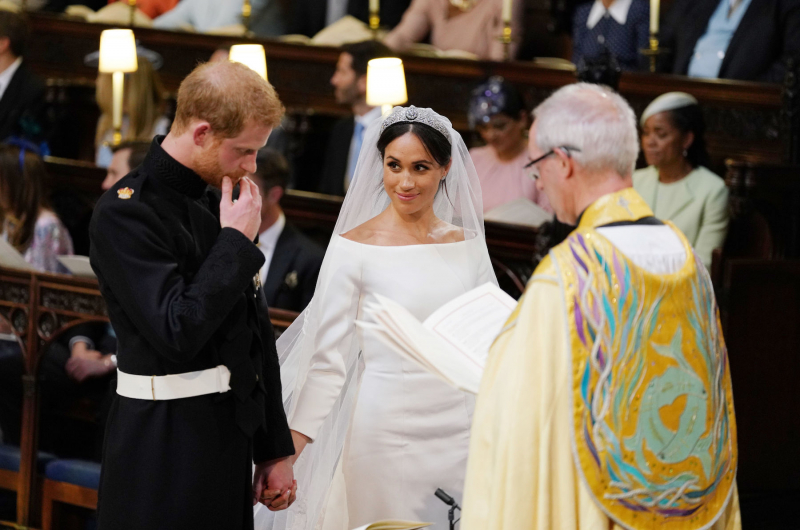
http://abc7news.com/ 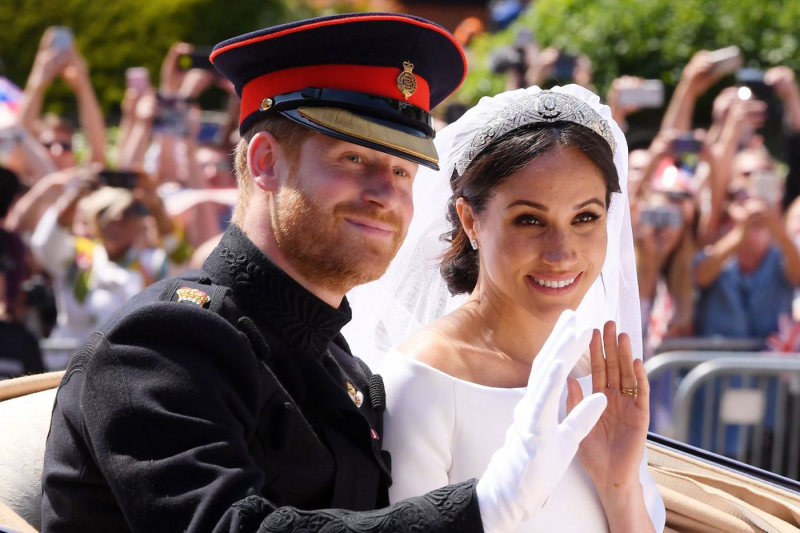
https://www.nydailynews.com/ -
The passing of Princess Diana sparked shock and mourning on a global scale. The mother and ex-wife of two British heirs to the throne were given near-saintly treatment by the international press and media. Numerous people gathered in their thousands to Buckingham Palace to pay their respects with flowers, cards, messages, banners, posters, and vigils. Celebrities paid tribute continuously. However, there was a lot of disapproval of the Queen and the Royal Family. The Royal Standard was not flying at half-mast over the palace, which was one of the concerns. The Royal Standard flew at Balmoral, the Queen's previous house, as required by convention at the time the Queen was not residing there at the palace.
Diana was portrayed as a role model mother to Princes William and Harry during the grieving period and funeral, which reintroduced the circumstances that led to her divorce from Charles. The Queen and the Royal Family came under heavy fire at the same time for how they handled Diana while she was still alive and for what many believed to be their lack of concern for her terrible passing. Some conspiracy theories connected Diana's demise to British intelligence, French intelligence, and possibly Prince Philip, Duke of Edinburgh and the Queen's husband. This may have been inevitable. Many are still up for discussion today.
Years after Diana's death, which was the consequence of a car accident in which her driver had a blood alcohol level more than three times the French legal limit, she was still held in high regard. The monarchy was shaken by her terrible demise, but over time, Elizabeth, who had initially drawn harsh criticism, gained the respect of the majority of her subjects.- Year: 1997
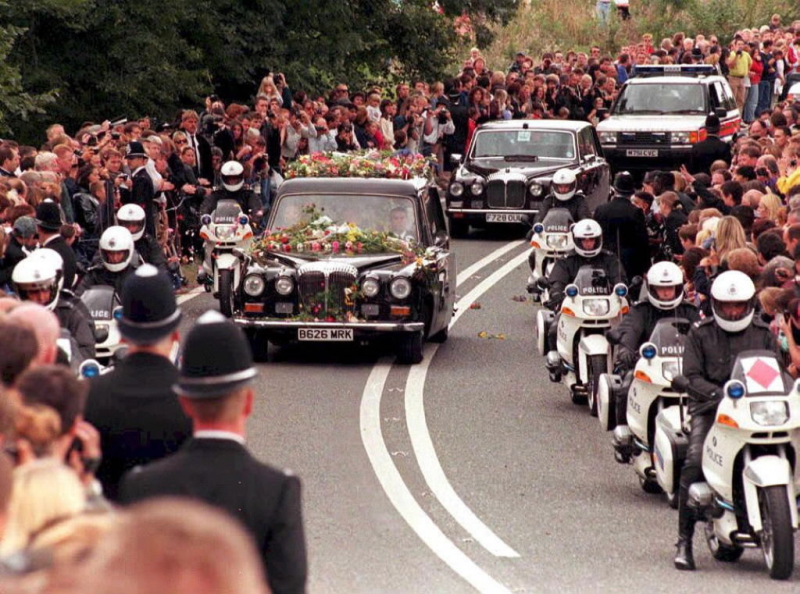
https://www.nytimes.com/ 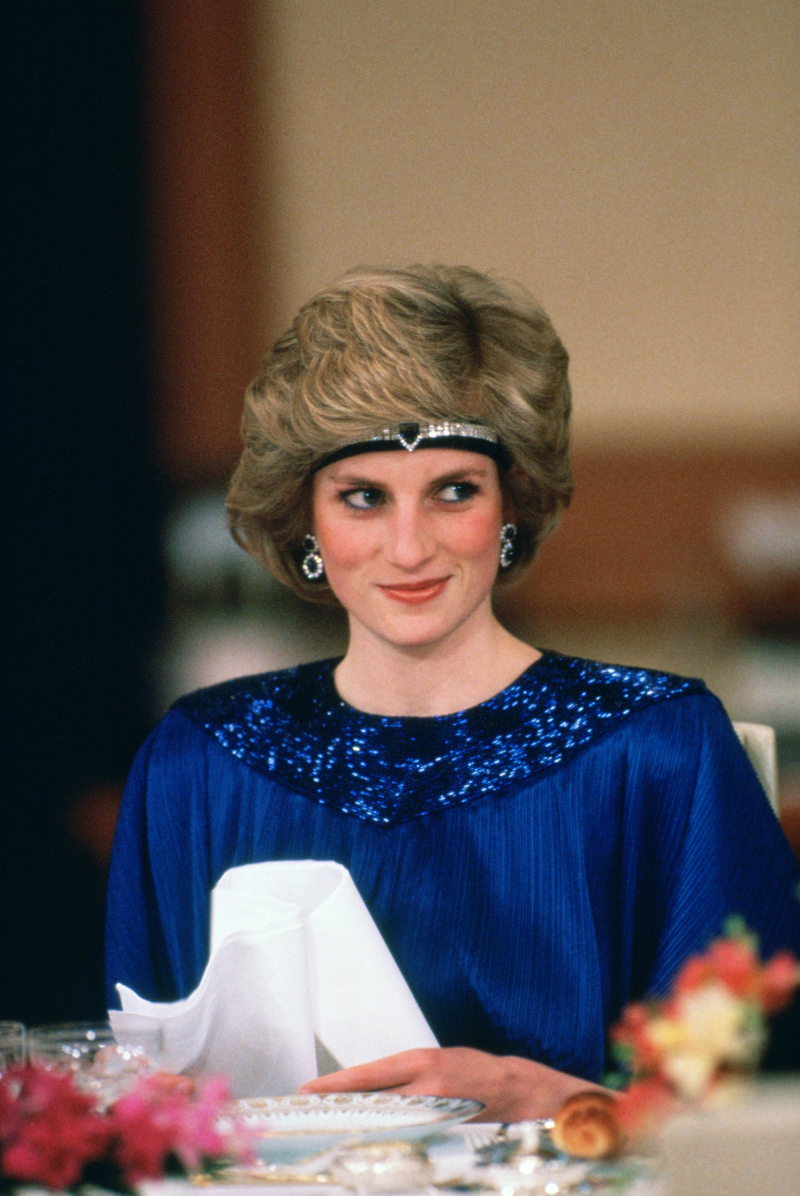
https://news.amomama.com -
Elizabeth has never had a personal scandal or even controversy in her lengthy life, either before or after her time as Queen. Since she was a young princess serving in the Second World War, her entire life has been devoted to duty. Sadly for Her Majesty, her family cannot be claimed to have the same advantage. Margaret, Elizabeth's sister, had a famous divorce, multiple sex scandals, and a highly publicized private life that fed both American and British tabloids with story material. In the British media, Andrew, Elizabeth's son, was referred to as "Randy Andy" decades before he was linked to Jeffery Epstein and accused of abusing children because of his outspoken actions. Due to his declining reputation, he was eventually relieved of his royal duties.
However, it was Her Majesty who dubbed 1992 as Annus Horribilis, declaring it "not a year on which I shall look back with unadulterated joy," due to the strained relationship between her son Prince Charles, his wife Princess Diana, and the intruders into their marriage. Following a tabloid-fueled incident in which both parties were connected to outsiders, her daughter Anne and her husband, Captain Mark Phillips, separated that year. The Duchess of York, then Sarah Ferguson, and her husband, the aforementioned Randy Andy, created a number of racy press tales with accompanying pictures that eventually caused them to separate and get divorced. The split of Diana and Charles was then marked by the disclosure of the Princess of Wales's chats with James Gilbey.
Another recording the next year, featuring private and uncomfortable talks between Prince Charles and Camilla Parker Bowles, added to the outcries and criticism of the royal family's conduct. While the majority of the world regarded the Windsors' actions to be abhorrent, Her Majesty maintained the fabled British "stiff upper lip" and survived the crisis. Since then, further scandals have broken, but Elizabeth has persevered despite them.- Year: 1992
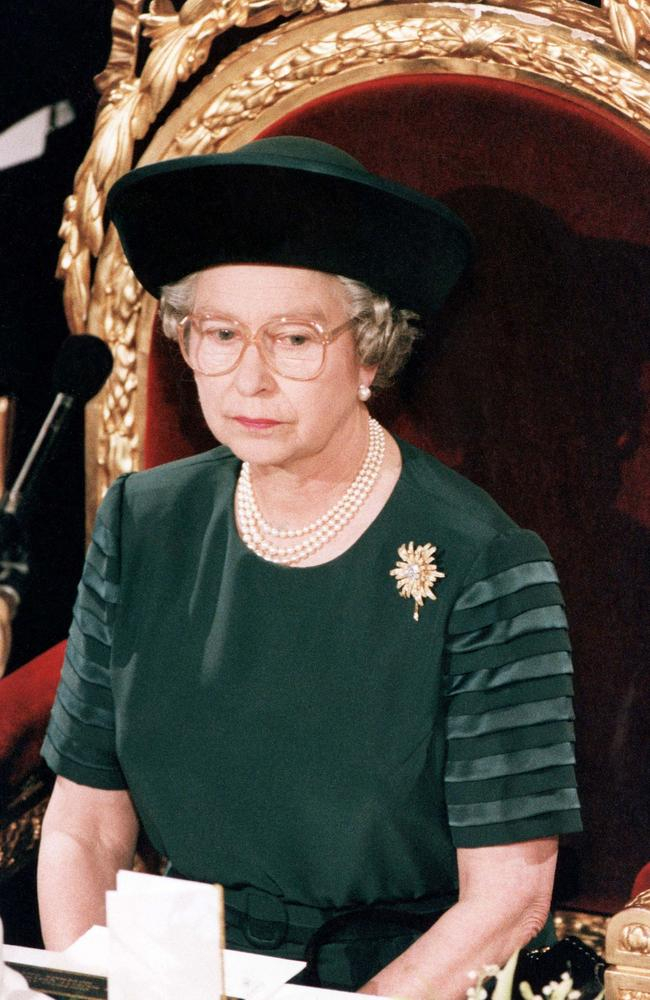
https://www.news.com.au/ 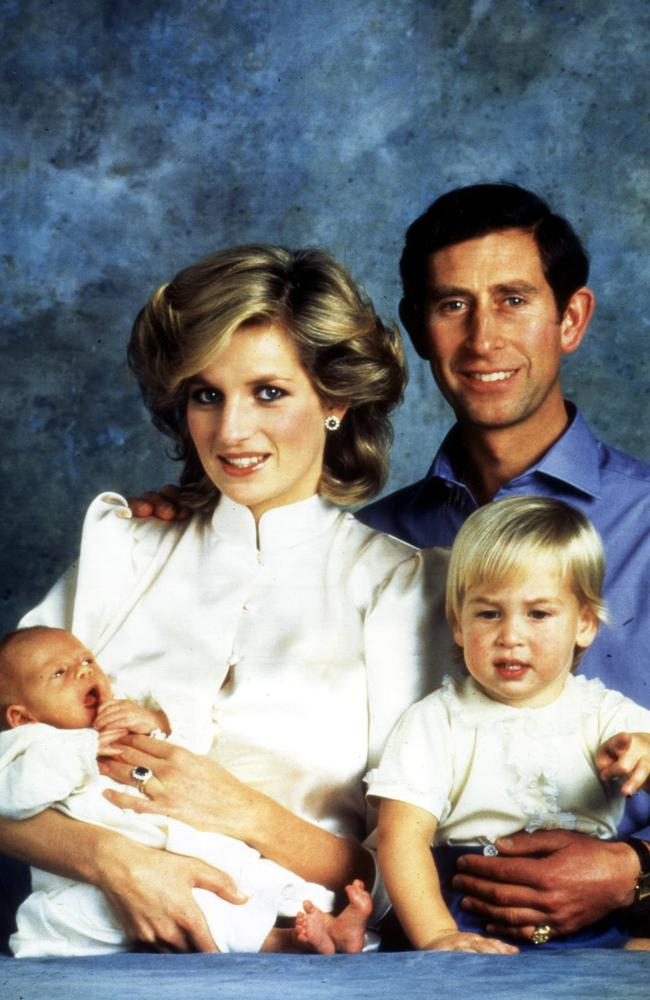
https://www.news.com.au/ -
Hong Kong was a British colony from 1841 until it was invaded by the Japanese during World War II (1941–1945). During the Opium Wars, Britain conquered the region by right of conquest and continued to grow its territory throughout the rest of the 19th and the beginning of the 20th centuries. The effort to reacquire the territory and the Portuguese-held territory of Macao began when the communist People's Republic of China (PRC) won a seat on the UN Security Council. In the 1970s, the PRC formally acknowledged but rejected British control over Hong Kong's administration.
Controversies occurred when Britain engaged in protracted negotiations to handover Hong Kong to Chinese sovereignty, which were made worse by what some saw as PRC saber-rattling. After years of diplomatic back-and-forth, including the first trip to Hong Kong by a British Prime Minister in office (Margaret Thatcher), the British finally consented to cede control of the region to China in 1984. In 1986, Queen Elizabeth paid the city a visit (her second trip to Hong Kong, the first occurring in 1975). As promised, on July 1, 1997, the land was formally transferred. At the official transfer, Prince Charles represented the monarchy.
The British Empire was already in the process of being dissolved when Elizabeth came to the throne in 1952. For many people, the British Empire's demise was symbolized by the transfer of Hong Kong. The 14 remaining territories still under the Crown's control were referred to as British Overseas Territories by Parliament in 2002.- Year: 1997
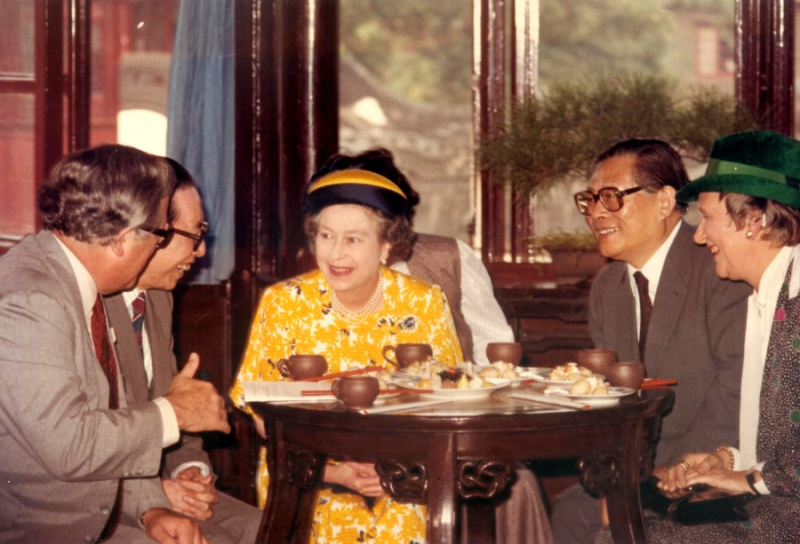
https://www.thinkchina.sg/ 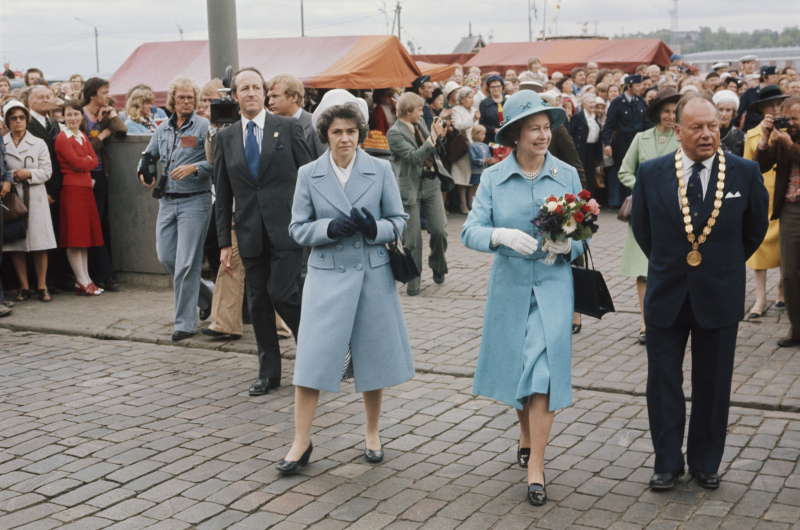
https://www.voguescandinavia.com/ -
Throughout her reign and into the 1980s, Queen Elizabeth was plagued by centuries of bombings, assassinations, military and police anti-terror efforts, riots, civil war, and a plethora of violence over Ireland known together as "The Troubles." The British Army in Northern Ireland battled in the late 1960s to forge peace with the extreme IRA divisions and other terrorist organizations. British forces and Irish "revolutionaries" engaged in violence in Northern Irish cities, making places like Belfast as hazardous as any other in the globe. There have been terrorist bombs in London and other British cities.
The IRA carried out several high-profile assassinations of senior officials in 1979 that were infamous for their brutality and audacity. US General Alexander Haig, a former US Secretary of State and Commander of NATO, came dangerously close to dying as a result of the bombing campaign. Lord Mountbatten, an uncle of Elizabeth's husband Prince Philip, and numerous members of his family were killed when IRA explosions tore apart a boat in August 1979. Mountbatten, the Queen's distant relative, served as India's final Viceroy. Many observers believed that the IRA's indiscriminate slaughter was just as savage as what Islamic terrorists later engaged in.
Conservative British governments responded by implementing anti-terrorist measures while political parties tried to reach amicable arrangements. For more than 60 years, there have been ongoing issues with the Northern Ireland administration. Despite the advances achieved, violent waves were still being produced by fringe terrorist groups. After serving in Northern Ireland for more than three decades and losing more than 1,400 soldiers over their extensive deployment, British Army troops withdrew from the region in 2007. The lengthy reign of Elizabeth II has been marred by "The Troubles," which still exist today.- Year: 1980s
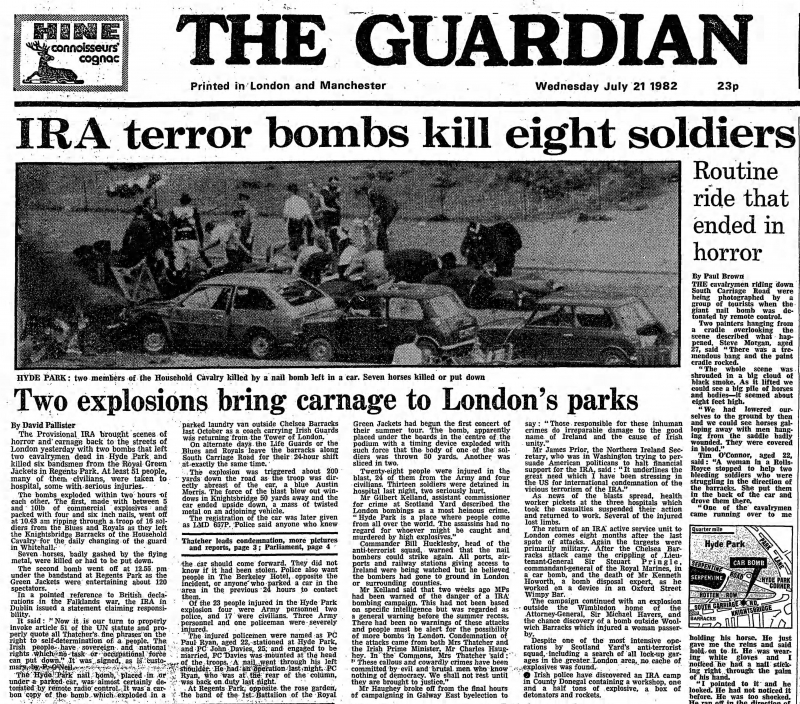
https://www.theguardian.com/ 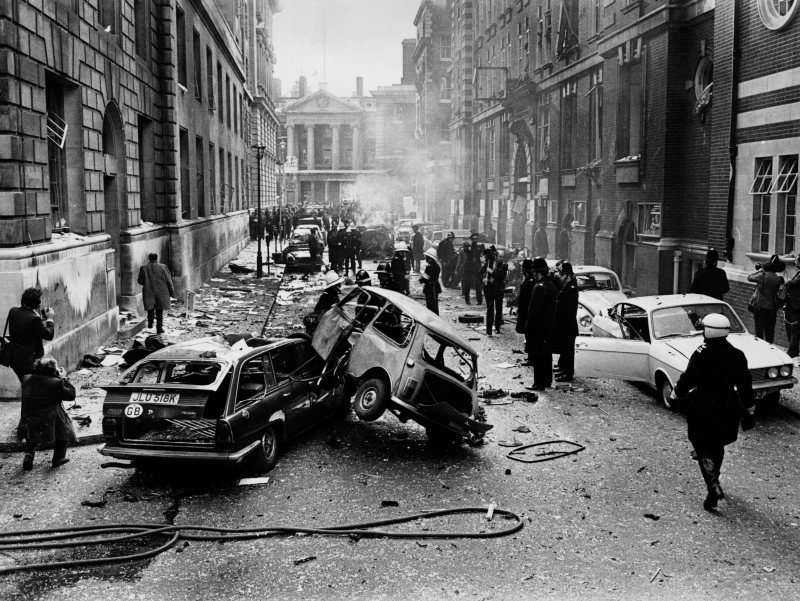
https://www.newsweek.pl -
Although US President Lyndon Johnson's administration and his envoys exerted sometimes nearly constant pressure, the UK did not explicitly endorse American military participation in Vietnam. But the Vietnam War did not spare Great Britain. Queen Elizabeth saw anti-war demonstrations among her subjects and in her dominions as the 1960s progressed. Similar to the United States, there was a severe divide over American involvement in Vietnam among Queen Elizabeth's territories. British relations with the United States were strained. American antagonism met British efforts to mediate a peace, especially during the Johnson Presidency.
In what is now the country's longest military operation in its history, Australia did send troops to Vietnam. Likewise, New Zealand. These further divisive moves made sure that protests against the war and American involvement in Vietnam would continue. During the 1960s and 1970s, violent anti-war protests were frequent throughout Elizabeth's sphere of influence.
A bit of political doublespeak for which Orwell would have been proud was used by British Prime Minister Harold Wilson in the 1960s when he portrayed Britain's stance toward American activities in Vietnam as one of "negative support." Her Majesty's government spent a lot of time in the 1960s and 1970s focusing on British opposition to the Vietnam War and the alliance of British anti-war activists with those of America and other western nations. Even while Britain wasn't directly fighting in the conflict, the US and UK's "special relationship" was further strained by Britain's division over America's participation.
- Year: 1960s - 1970s
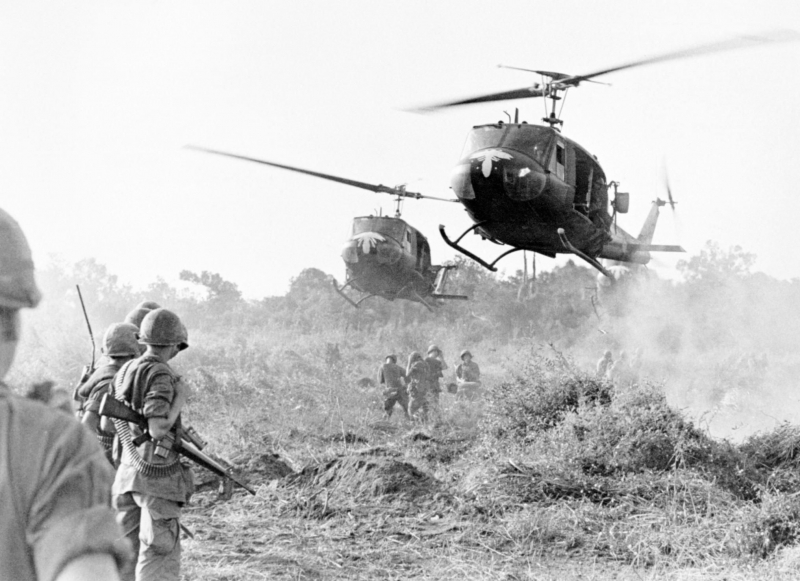
https://www.thoughtco.com 
http://www.spokesman.com/ -
In October 1966, an illegally built and managed coal soil tip—a mound of waste material produced by coal mining—slid down a Welsh hillside and destroyed a portion of the village of Aberfan, burying a school and several homes. 116 of the 144 victims killed by the slide were youngsters. The National Coal Board, which had created and maintained the tip along with six others nearby, and had all violated the rules controlling their existence, was held accountable for the incident as a result of the investigation that followed. Despite being held accountable for the tragedy, neither the National Coal Board (NCB) nor any of its officers ever faced legal action. Nobody else was either.
Her Majesty Queen Elizabeth resolutely refused to go to the scene in the early aftermath of the catastrophe, though her husband, Prince Philip, Duke of Edinburgh, went. Lord Snowdon, who was at the time married to Princess Margaret, the sister of Elizabeth, agreed as well. Eight full days passed before Her Majesty decided to visit the location to meet with her subjects. According to some watchers of the Royals and her reign, it was a delay that she would eventually come to regret. In 2016, on the occasion of the tragedy's 50th anniversary, she sent Prince Charles, her son and likely heir, a telegram expressing her ongoing sorrow and recognizing the date.
In terms of fatalities, the Aberfan disaster continues to be the worst mining accident in British history as of 2022. It continues to be a source of resentment for the survivors' and victims' families, as well as a source of deep regret for Queen Elizabeth.- Year:1966
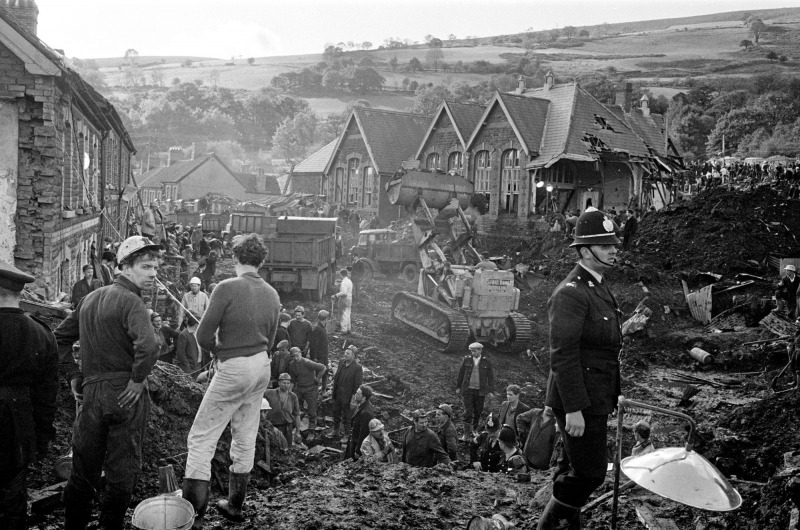
https://www.businessinsider.com.au/ 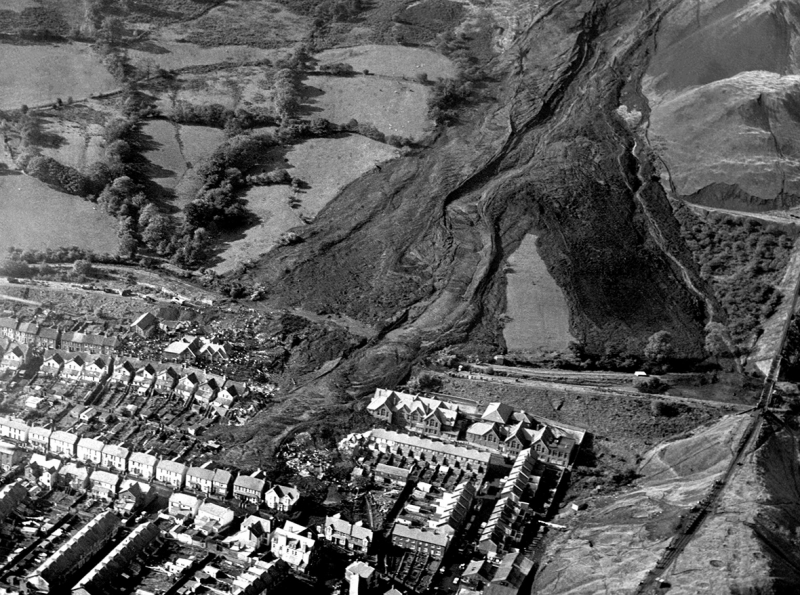
http://www.ibtimes.co.uk/ -
Great Britain dominated the 1960s entertainment industry, starting with the Beatles in the early 1960s and continuing with movies like Alfie and To Sir, With Love, television shows like The Avengers and Dr. Who, and international stars like Twiggy, Sean Connery, Julie Andrews, and David Frost. Swinging London seems to appear out of nowhere on dingy, dull British streets. British musical performers, especially in the United States, where disposable cash found its way into British pockets, dominated the airwaves under the leadership of The Beatles. The Beatles alone were making about $650 per second in the world by the middle of the 1960s.
The Bank of England changed the dollars that were earned into British pounds. The dollars helped the British economy, prevented the pound from falling in value, and decreased the country's debt. Her Majesty did not award the MBEs to the four Beatles just due to their fame. They were the driving force behind an economic revival that improved both British morale and the British economy. Additionally, they were a part of a broader "feel-good" movement that spread throughout Britain in the 1960s. National service, the British equivalent of the US draft, ended in the first year of the decade. Other changes came after that.
With the adoption of the Abortion Act in 1967, abortion was made acceptable in Great Britain. Through the National Health Service Act of 1967, birth control became widely accessible in the same year. Previously illegal same sex acts between consenting adults (21), which were legalized in England and Wales in 1967, Scotland in 1980, and Northern Ireland in 1982. These changes, in the eyes of many conservatives and religious authorities, were indicative of the imperial decline. Others saw them as a sign of the recently discovered personal freedoms that British law guarantees and protects.
- Year: 1964 – 66
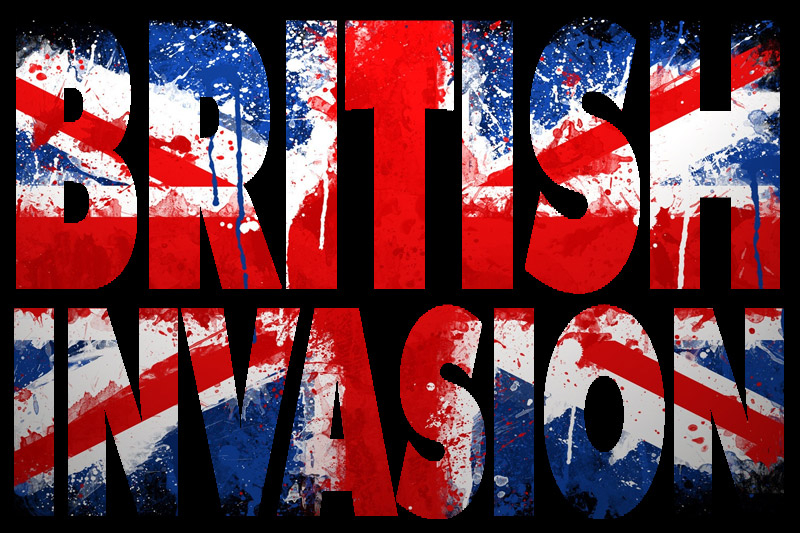
https://edition.cnn.com/i 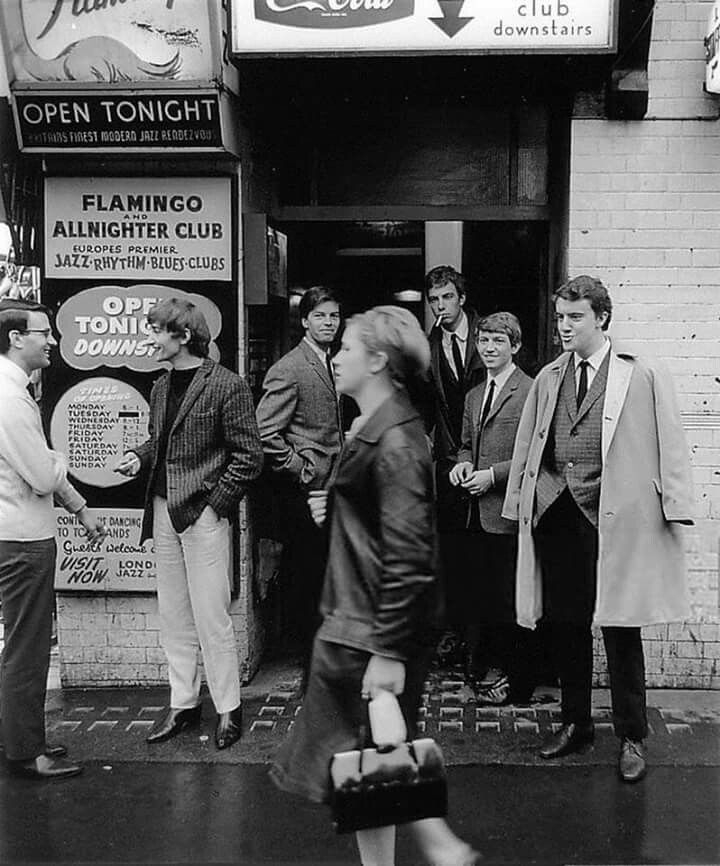
http://anglotees.com/ -
During the Second World War, there was extensive British-American scientific collaboration, especially on the highly secret Manhattan Project, which resulted in the development of the atomic bomb. As part of the Quebec Agreement, the independent atomic weapons programs of Britain and America were combined in 1943. The McMahon Act, which limited access to American weaponry technology, was passed by Americans in 1946. Since then, the UK has advanced independently, creating thermonuclear bombs by 1957. The Americans developed the Polaris system for use in nuclear-powered submarines in the late 1950s, but the British lagged behind in developing a resilient nuclear deterrent system.
Polaris and the idea of reestablishing the special relationship between the United States and the United Kingdom had the endorsement of President John F. Kennedy. The Skybolt missile program, which was intended to use aircraft carrying the Skybolt missile to launch thermonuclear warheads, was abandoned by the US as a result of the early Polaris submarines' success. Early plans called for the UK to fund development for the weapons system while also purchasing the Skybolt system to strengthen their own deterrence. The Kennedy Administration suggested sharing Polaris with the Royal Navy after Skybolt was scrapped. While the UK supplied the submarines and its own warheads, the US agreed to sell the British Polaris missiles and launch system.
The source of Great Britain's autonomous nuclear deterrence program continues to be the Polaris Agreement, which was later modified to include Trident missiles. The Royal Navy has kept at least one nuclear-armed submarine on the open seas since 1966, giving the British government leverage in international negotiations as a legitimate nuclear state. For more than 50 years, British credibility as a nuclear power has been based on the Polaris Agreement between the United States and Her Majesty's Government. It will continue to unite the two powers for many years to come with modifications to include the Trident II missile and the Dreadnought class submarine.- Year: 1962
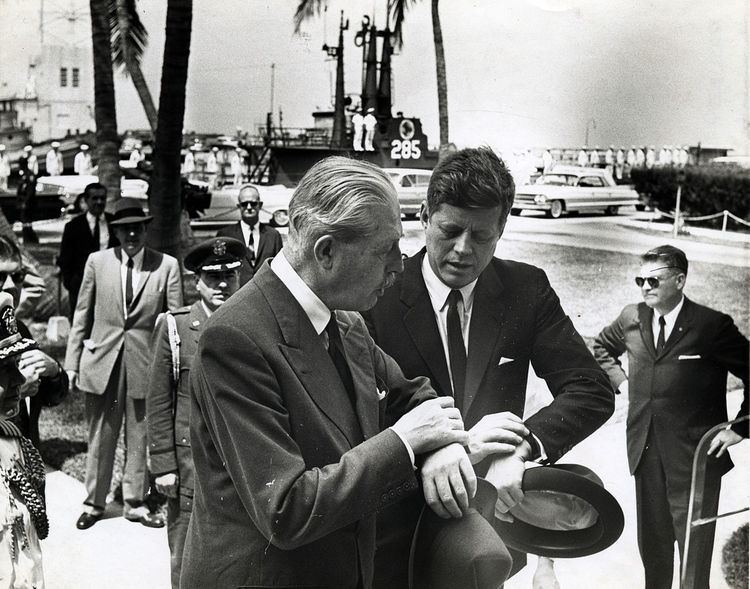
https://alchetron.com/ 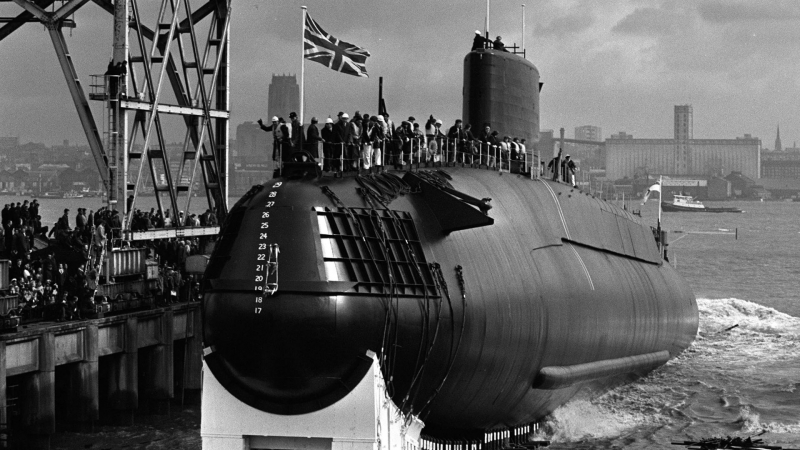
https://english.alaraby.co.uk/ -
Egypt's Gamel Abdel Nasser nationalized the Suez Canal Company in 1956, taking over management of the significant canal. The firm, which was mostly owned by British and French owners, was in charge of managing the crucial waterway's operations. The region became a powder keg due to intricately connected geopolitical and economic interests including Britain, France, the United States, the Soviet Union, Iraq, Egypt, Israel, and Jordan. The region's control over vast oil reserves also contributed to this. Israel invaded Suez in 1956 to retake control of the canal, supported by the French and British. This operation is frequently referred to as the Second Arab-Israeli War. Egypt received support from the Soviet Union. Fearing Soviet action and intervention in Europe, the United States denounced the Franco-British invasion.
In 1956, the Suez Crisis escalated into a full-fledged war involving naval, air, and ground forces on a par with the Mediterranean theater of World War II. The UK and France were forced to stop their invasion by the US through military, political, and economic pressure. Israelis were offended by American and their allies' support for Nasser. Eventually, pressure led to the overthrow of Prime Minister Anthony Eden's British government. Britain and France were obliged to withdraw their forces despite certain military victories. The negotiated agreement humiliated both the British and the French in the eyes of the international community and, like all Mideastern agreements, set the stage for upcoming crises.
The post-World War II era experienced a significant turning point with the Suez Crisis, which is hardly discussed in most Western history. It caused a fracture in the alliance of the English-speaking nations and signaled the end of Great Britain as a global superpower. The following year, Elizabeth made her first trip to the US as a monarch, in part to improve US-UK relations. The College Park, Maryland, supermarket was one of the American locations Her Majesty requested to visit. Food rationing was still in place in Great Britain at the time of her visit.- Year: 1956
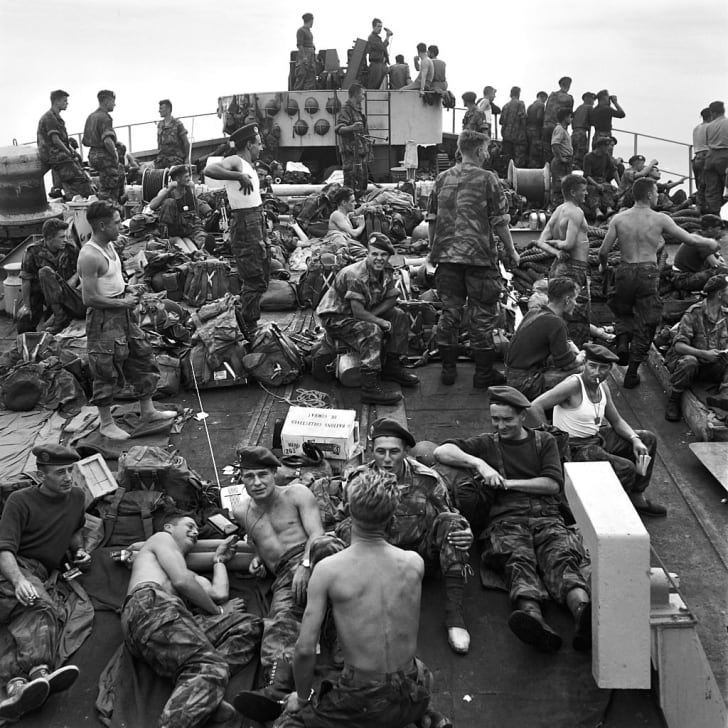
http://mentalfloss.com/ 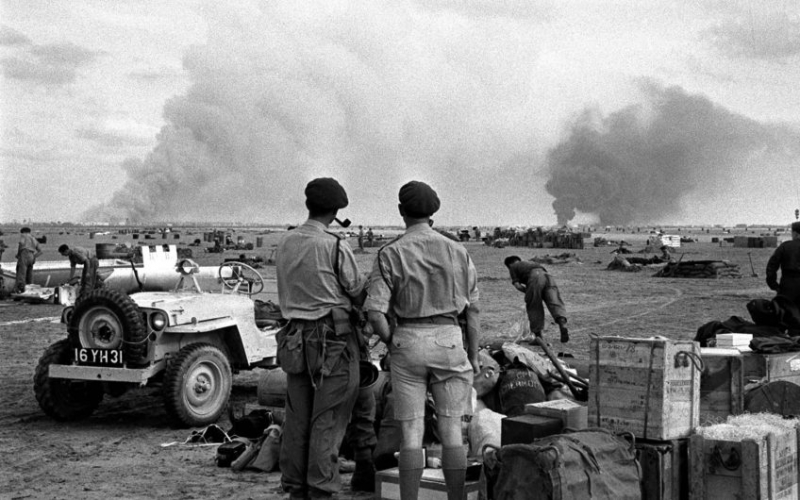
http://www.theoldie.co.uk/












